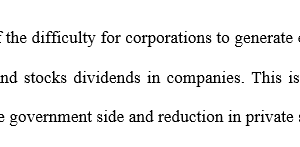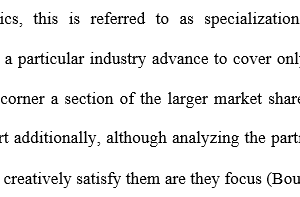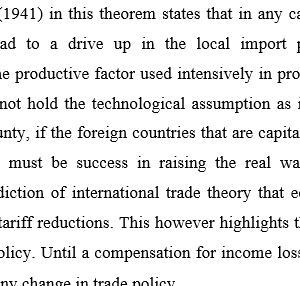EXTERNALITIES
Adam Smith is famous for his profound insight that competition serves to align the private
interest of the individual with the social interest of the community at large. You have
encountered this conclusion in your textbook in the discussion on the efficiency of competitive
markets. Even though each consumer and each producer intends only his own gain, an
equilibrium is reached that is efficient and maximizes the net benefits to society from the
production of the good in question.
Does competition always generate this happy outcome? Sadly, no. Under certain circumstances,
unfettered self-interest makes the whole community worse off. In the last two decades of the
twentieth century the population of beluga sturgeon in the Caspian Sea fell by 90 percent. Today,
passing trawlers inadvertently scrape the delicate coral reefs off the coast of Norway. Thailand’s
environmentally sensitive mangrove forests are being destroyed by shrimp farms. (Broad,
William J. and Revkin, Andrew C., “Has the Sea Given Up Its Bounty?” New York TimesJuly
29, 2003, Late Edition (East Coast): F1.)
Even though these activities are all motivated by producers’ desire to meet the world’s demand
for the produce of the oceans, and producers are surely paying for their ships, fuel, and bait,
Adam Smith’s conclusion does not apply in any of these examples. The reason is that the
producers are not incurring the full cost of their activities.
Every fishing boat contributes to the pollution of the waterways. But no one presents the owners
with a bill for their share in the pollution-induced deterioration of the fishery. This cost is
external to the owners’ reckoning, and is therefore ignored. Whenever an individual can avoid
part of the cost of his or her activities, actions that make the individual better off can harm the
collective good, sometimes dramatically. The marginal private cost is less than the marginal
social cost. The figure below illustrates the situation in which a fishing boat creates an external
cost.
Question 1:
On the figure, identify the following:
a) The equilibrium quantity of fish if the market is unregulated and competitive.
b) The magnitude of the marginal external cost at the unregulated, competitive market
equilibrium.
Question 2:
Britain is proud of its National Health Service (NHS). In 1948, the National Health Service Act
stipulated that the government would provide virtually free medical care for all citizens.
Physicians receive a salary plus a per-patient payment from the government. The NHS embodies
the socialist philosophy that profit-driven markets are not the appropriate mechanism for
allocating health care.
Markets serve two functions simultaneously: (1) allocation of existing goods and services among
competing buyers, and (2) motivation for producers to bring new goods and services to the
market. The NHS was established to replace market-determined prices with prioritized waiting
lists as the allocation mechanism among competing buyers. Recently, however, the NHS has
embraced the profit motive as a mechanism for performing the second function.
The Economist reported that the government has introduced mechanisms to allow hospitals and
individual inventors to profit from their innovations. Intellectual property rights will be assigned
and protected, allowing the market to reward producers. The Economist predicts an enthusiastic
reaction by producers. “In the first year of this new regime, the NHS has earned about £500,000
($830,000) from about a dozen inventions or new techniques. There is, American experience
suggests, plenty of scope for more. One American hospital alone—Massachusetts General in
Boston—has an annual licensing income from its doctors’ discoveries of $30m. In 2002, the
hospital reckoned it made 213 discoveries, filed 104 patents, and spun out four companies.”
(“Healthy Profits.” The Economist October 2, 2003)
a) Imagine a doctor in Britain finds a way to treat stomach ulcers with common kitchen
ingredients, replacing a costly prescription medication. The potential marginal social benefit of
this discovery would be the amount saved by the NHS on all ulcer patients’ prescriptions, which
is tremendous. If there are no intellectual property rights, what is likely to occur?
b) Why might your consumption of medical services confer some external benefits to the people
around you?





There are no reviews yet.